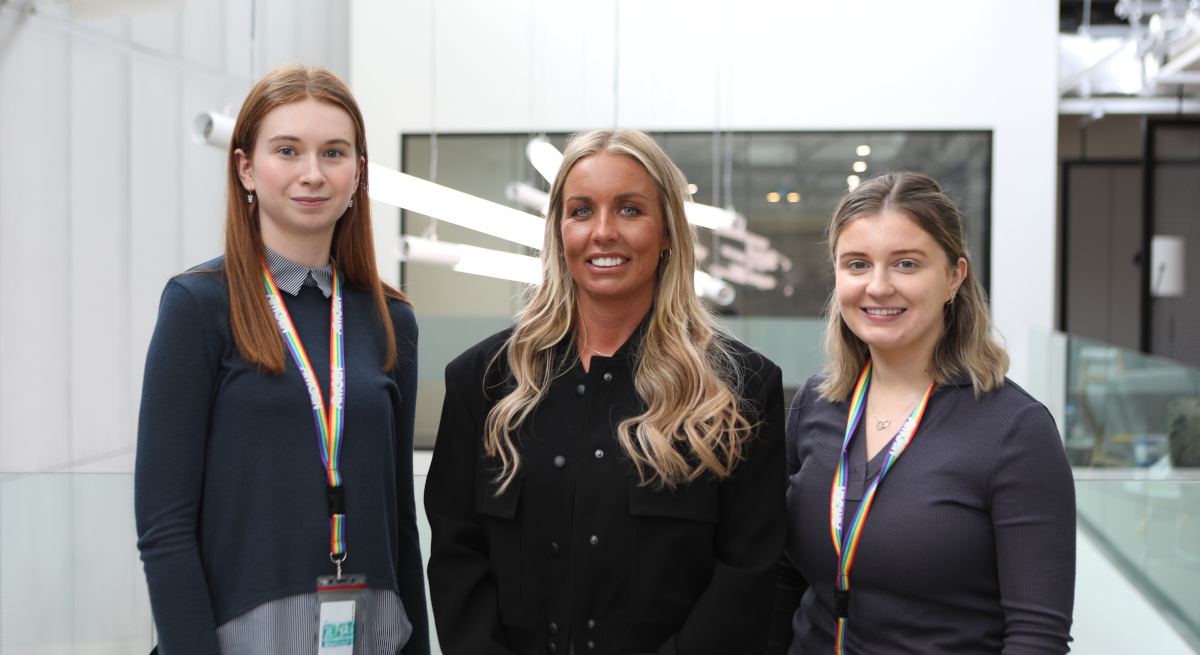
We recently visited Amgen to learn more about its biotech graduate programme from its lead and two current candidates.
Being a graduate can be a daunting experience. After spending a number of years in third-level education, graduating can be a bittersweet experience. You get the feeling of accomplishment for all the hard work you put into obtaining your degree, but then you’re thrust out into the professional world and it can feel quite overwhelming, especially if you don’t know where to start.
Luckily, there has been no better time to be a graduate due to the high number of opportunities available, from specialised programmes to beneficial internships, and even upskilling initiatives, in every industry. For example, Microsoft recently announced a number of new AI skills schemes, one of which is aimed at graduates and current workers. There is no shortage of avenues to pursue as a graduate.
But what is it like to participate in one of these programmes? To find out, SiliconRepublic.com visited Amgen’s site in Dún Laoghaire to learn about its biotech graduate programme. There, we spoke to the programme lead and two current participants about their experiences.
Experiences and surprises
According to Kim Greer, graduate programme lead at Amgen, the programme is completed over the course of two years, where the candidates take part in “multiple rotations within the function”.
“The graduates will be empowered then to take responsibility and to adapt to the dynamic environment of the business that we’re in,” she says.
For quality assurance associate and programme candidate Grace Phelan, her experience began in plant quality assurance, where she said she gained an “understanding of what kind of defects can occur and why they happen”. She then moved to quality systems, where she now works in the audits and inspection readiness programme.
For fellow candidate Laura Cunningham, who also works as a quality assurance associate, her experience started a year ago. Cunningham, who is taking part in the Fuel Emerging Talent Rotational Programme, has just completed her first rotation, which was in process development.
Now, Cunningham has begun her second rotation in incoming quality assurance, where she works on the syringe ramp-up project as well as working with the warehouse to manage and increase syringe output.
For both candidates, the biggest surprise was the amount of support the company gave to the graduates through encouragement and career opportunities, with Cunningham saying that you’re given “every opportunity you could ask for”.
“You’re encouraged to take part in projects and get trained up in all sorts of different tasks,” adds Phelan.
Flexibility and communication
So what does Amgen look for in graduates?
Greer explains that the first main quality they look for is flexibility.
“We work in a very complex environment, so the ability to be able to adapt quickly and to be agile is really, really key,” she says. “To be able to work as part of a team and obviously as an individual contributor as well.”
Greer also states that candidates need to be good communicators as well, as they will be working in a cross-functional environment.
“We’re looking for high potential graduates with the drive to learn and looking to get practical hands-on experience in the industry.”
10 things you need to know direct to your inbox every weekday. Sign up for the Daily Brief, Silicon Republic’s digest of essential sci-tech news.

